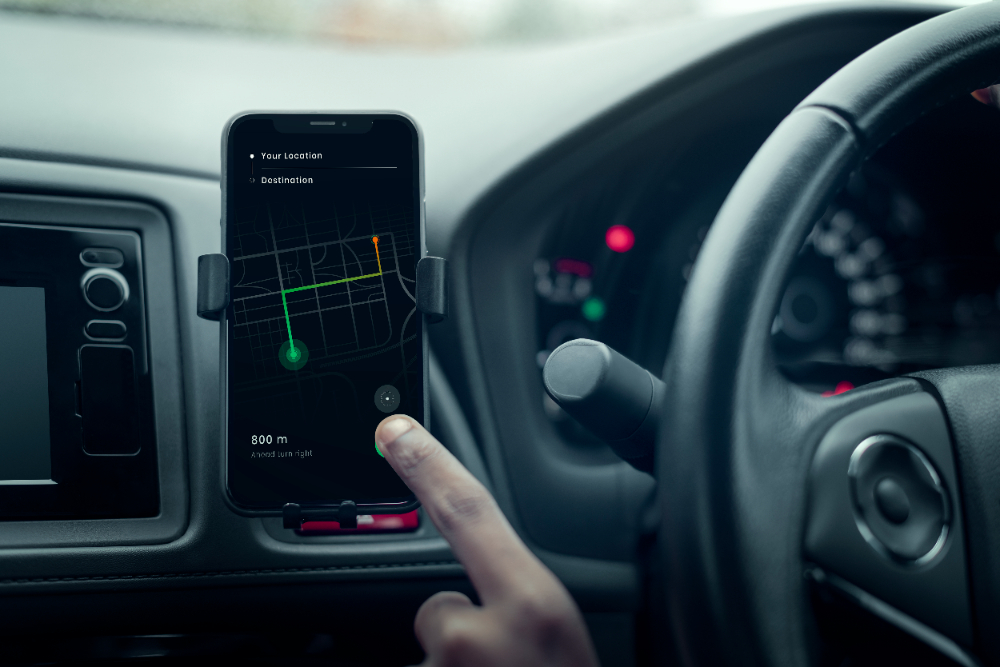The logistics and transportation industry in India is on the brink of a technological revolution. As global supply chains grow more complex and consumer expectations rise, businesses are leveraging advanced technologies like the Internet of Things (IoT), Artificial Intelligence (AI), and Machine Learning (ML) to streamline operations, enhance efficiency, and improve customer experiences. This technological evolution is not only transforming the way goods are moved but also setting the stage for a more sustainable and responsive logistics ecosystem.
IoT: Enabling Real-Time Visibility
The Internet of Things has emerged as a cornerstone of modern logistics. By embedding sensors and devices into vehicles and shipments, IoT enables real-time tracking and monitoring. Logistics companies can now:
- Track Shipments in Real Time: IoT devices provide live updates on the location and condition of goods, ensuring timely delivery and better inventory management.
- Monitor Vehicle Performance: Sensors installed in trucks and trailers can track engine health, fuel consumption, and tyre pressure, reducing maintenance costs and improving safety.
- Enhance Cargo Safety: IoT solutions can alert operators about temperature fluctuations or unauthorised access, critical for sensitive goods like pharmaceuticals or perishables.
AI and Machine Learning: Driving Intelligent Decisions
Artificial Intelligence and Machine Learning are revolutionising decision-making in logistics by analysing vast amounts of data to uncover actionable insights. Key applications include:
- Route Optimisation: AI-powered algorithms analyse traffic patterns, weather conditions, and delivery schedules to determine the most efficient routes, reducing fuel consumption and transit times.
- Demand Forecasting: Machine learning models predict future demand based on historical data and market trends, helping businesses optimise inventory and resource allocation.
- Fraud Detection: AI systems identify anomalies in transactions and logistics processes, safeguarding businesses against potential fraud or theft.
Automated Fleet Management
Automation is streamlining fleet operations, allowing companies to manage vehicles and drivers more efficiently. Automated systems can:
- Schedule Maintenance: Predictive analytics ensure timely vehicle servicing, minimising downtime and operational disruptions.
- Allocate Resources: Automation assigns vehicles and drivers to tasks based on availability and capacity, optimising fleet utilisation.
- Monitor Driver Behaviour: Advanced telematics track driver performance, promoting safer and more fuel-efficient driving practices.
Real-Time Tracking: Transparency for Customers
Transparency has become a key differentiator in logistics, with customers demanding real-time updates on their shipments. Technologies like GPS and cloud-based platforms provide end-to-end visibility, enabling:
- Improved Customer Experience: Real-time tracking allows customers to plan around delivery schedules, boosting satisfaction.
- Proactive Issue Resolution: Logistics teams can address delays or disruptions before they impact customers, enhancing reliability.
Indian Innovations in Action
Several Indian logistics companies are at the forefront of this technological transformation. For instance, Goel Roadways has adopted IoT-enabled tracking systems and AI-powered route optimisation tools to improve efficiency and sustainability. Their commitment to leveraging advanced technologies has not only enhanced operational performance but also set a benchmark for the industry.
Challenges and Opportunities
While the benefits of these technologies are undeniable, their adoption is not without challenges. High initial costs, a lack of skilled workforce, and infrastructure limitations can hinder progress. However, government initiatives like the Digital India programme and Make in India are creating a favourable environment for technological advancements in logistics.
The Road Ahead
As India’s logistics industry continues to grow, the role of technology will become even more critical. The integration of IoT, AI, ML, and other innovations promises to address longstanding inefficiencies, reduce costs, and enhance sustainability. Companies that embrace these changes will be well-positioned to thrive in a rapidly evolving market.
In the end, the future of logistics lies in the seamless integration of technology, innovation, and human expertise. By staying ahead of the curve, India’s transportation industry can not only meet global standards but also drive the nation’s economic growth and sustainability goals.




